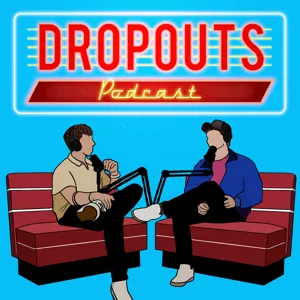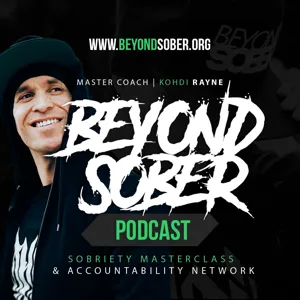Podcast Summary
The Importance of Coping with Undependability in Relationships: Understanding our longing for dependability and accepting undependability as a part of life can help us grow and adapt in relationships and experiences.
While we have a natural longing for dependability in our relationships, environment, and experiences, the reality is that undependability is a part of life. Dr. Rick Hansen, in his presentation for the Foundations of Well-being program, discusses this topic in the context of intimacy and the importance of coping with undependability. As children, we rely on dependable caregivers and a dependable physical universe for our survival and development. As adults, we continue to seek dependable relationships and experiences. However, life can be unpredictable, and caregivers or environments may not always be dependable. Dr. Hansen emphasizes the importance of cultivating inner resources to cope with undependability, which can help us grow and adapt. Understanding our natural longing for dependability and accepting the reality of undependability can help us navigate relationships and experiences with greater resilience and flexibility.
The world's instability leads to a desire for dependability and suffering: Recognize the transient nature of experiences and build resilience for inner dependability to find lasting happiness.
Both the external world and our internal experiences are inherently unstable and undependable, leading to a natural desire for dependability and a source of suffering. The human brain is a complex and dynamic system that constantly creates partitions and stabilizes processes to make sense of the world. However, experiences, whether it's the sight of a banana or the feeling of love, are transient and insubstantial, making them an unreliable foundation for lasting happiness. The external world is also unpredictable, with environments and people being prone to change and unreliability. This inherent instability and undependability can lead to disappointment and suffering. To cope with this, we can focus on building resilience and finding sources of dependability within ourselves and our relationships, rather than relying solely on external sources. Additionally, acknowledging and accepting the transient nature of experiences can help us appreciate them fully in the present moment.
Accepting life's groundlessness: Recognize life's impermanence, practice centering techniques, and let go of unrealistic expectations for stability and perfection to find inner peace and resilience
Life's unpredictability and the inherent instability of our outer environments, our bodies, and relationships can be unsettling. We often hold onto unrealistic expectations, rooted in our childhood experiences, leading to disappointment and a sense of shaky ground. Even our constructed experiences are undependable, adding to the feeling of instability. To cope, it's essential to acknowledge and accept the groundlessness, recognizing that life's impermanence is a normal part of existence. Practicing centering techniques, such as mindfulness, can help us navigate this uncertainty and find stability within ourselves. Remembering that perfection and understanding from others are unrealistic expectations can also prevent unnecessary frustration. Embracing the groundlessness and finding inner peace amidst it can lead to a more resilient and fulfilling life.
Navigating undependability in relationships and life: Accepting the imperfections of others and oneself, focusing on self-care, engaging in conversations about broken agreements, and being dependable ourselves are crucial responses to undependability in relationships and life.
Recognizing and accepting the undependability of others and oneself is a crucial aspect of navigating relationships and life. It's important to understand that people, including ourselves, are imperfect and may not always keep their promises. This can be disappointing and frustrating, but it's essential to accept it and focus on what we can control – shoring up our internal resources and engaging in self-care practices. Becoming disenchanted with the enchantment of expecting more dependability than is often the case can also help us see reality more clearly. Additionally, engaging with others about broken agreements and disengaging from those who are consistently undependable can be necessary coping responses. Lastly, being dependable ourselves is also important in creating and maintaining healthy relationships. It's essential to remember that everyone makes mistakes and that recognizing and addressing undependability can lead to growth and improvement.
Dependable Elements of Life: Awareness, accurate knowledge, innate goodness, past achievements, ongoing life, and dependable laws are all dependably true and reliable aspects of life that provide a foundation for navigating its complexities and becoming more reliable individuals
Despite the uncertainties and impermanence of life, there are dependable elements that we can rely on. These include our own awareness and accurate knowledge, our innate goodness, the past's unchangeable goodness, the ongoingness of life, and the dependability of physical laws and change. These dependable aspects provide a foundation for us to build upon and navigate the complexities of life. Additionally, focusing on dependability can help us become more reliable and trustworthy individuals for ourselves and others. Awareness, accurate knowledge, innate goodness, past achievements, ongoing life, and dependable laws are all dependably true and reliable.
Accepting the undependability of others: Recognize others' dependability limitations, practice self-reliance, and focus on inner strengths for resilience
Recognizing and accepting the undependability of others can be a challenging experience. It's natural for us to want to rely on others and expect them to be dependable. However, the truth is that everyone has their own strengths and weaknesses, and sometimes people may not be as dependable as we'd like them to be. Instead of denying or defending against this reality, it's important to acknowledge it and practice dealing with it in a healthy way. This can include becoming more dependable ourselves, recognizing other sources of dependability in our lives, and focusing on our own inner strengths and resilience. By accepting the undependability of others and practicing self-reliance, we can build the inner resilience necessary to navigate life's challenges and find happiness and fulfillment. If you'd like to learn more about developing this and other key inner strengths, check out Doctor Hansen's Foundations of Well-being program, which is based on his 35 years of experience helping people help themselves. The program provides a comprehensive, down-to-earth approach to building the inner strengths that lead to a good life. You can find a link to the program in the description of this episode. Join us next week as we explore the 10th strength in our year-long series: courage. Until then, thanks for listening.






